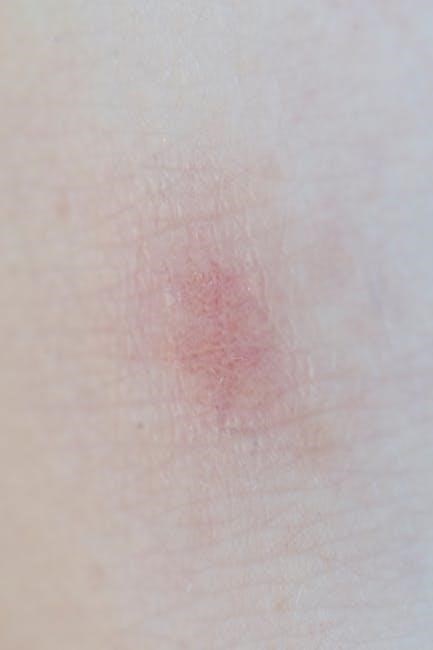Understanding bladder irritants is crucial for maintaining bladder health, and
various studies
have identified common irritants that can exacerbate symptoms, including certain foods and beverages that affect bladder function negatively always.

Definition of Bladder Irritants
A bladder irritant is any substance that can cause discomfort and exacerbate bladder symptoms, such as frequency, urgency, and pain. These irritants can be found in various foods, beverages, and medications, and can affect people differently. According to research, bladder irritants are defined as substances that can alter the normal functioning of the bladder, leading to increased symptoms. The definition of bladder irritants is important for understanding how to manage and prevent bladder problems. A comprehensive list of bladder irritants can help individuals identify and avoid substances that may irritate their bladder. By understanding what constitutes a bladder irritant, people can take steps to reduce their exposure and alleviate symptoms. This knowledge is essential for maintaining bladder health and preventing future problems. With the right information, individuals can make informed decisions about their diet and lifestyle to minimize the impact of bladder irritants. Effective management of bladder irritants can significantly improve quality of life.
Importance of Understanding Bladder Irritants
Understanding bladder irritants is crucial for individuals who experience bladder problems, as it can help them manage their symptoms and improve their quality of life. By recognizing the substances that can irritate the bladder, people can take steps to avoid or limit their exposure to these irritants. This knowledge can also help individuals make informed decisions about their diet and lifestyle, which can have a significant impact on their bladder health. According to research, understanding bladder irritants can also help reduce the frequency and severity of bladder symptoms, such as urgency and frequency. Furthermore, being aware of bladder irritants can enable individuals to work with their healthcare providers to develop effective treatment plans; Overall, understanding bladder irritants is essential for maintaining bladder health and preventing future problems. With the right information, individuals can take control of their bladder health and make positive changes to their lifestyle. This can lead to improved overall health and well-being.

Common Bladder Irritants
Substances that can cause bladder irritation include foods, beverages, and medications that affect bladder function, listed in various online resources and
medical studies
always available online today.
Foods and Beverages that Irritate the Bladder
Certain foods and beverages can irritate the bladder, leading to increased symptoms such as frequency, urgency, and pain. A list of common bladder irritants includes foods high in acid, such as citrus fruits and tomatoes, as well as spicy foods and caffeinated beverages. These substances can cause bladder irritation in some individuals, leading to discomfort and exacerbating existing bladder symptoms. According to online resources, a healthy diet that avoids bladder irritants can help alleviate symptoms and improve overall bladder health. Foods and beverages that are high in potassium, such as bananas and coffee, can also irritate the bladder in some individuals. It is essential to identify and avoid trigger foods and beverages to manage bladder health effectively. By making informed dietary choices, individuals can reduce their risk of bladder irritation and promote overall urinary health. A balanced diet that includes plenty of water and bladder-friendly foods can help to minimize symptoms and improve quality of life.
Medications that Can Irritate the Bladder
Certain medications can irritate the bladder, leading to increased symptoms such as frequency, urgency, and pain. According to online resources, medications such as diuretics, sedatives, and certain antidepressants can affect bladder function and cause irritation. These medications can alter the way the bladder stores and releases urine, leading to discomfort and exacerbating existing bladder symptoms. It is essential to discuss medication side effects with a healthcare provider to determine the best course of treatment. Some medications may need to be adjusted or changed to minimize bladder irritation. Additionally, certain medications may interact with foods and beverages that irritate the bladder, worsening symptoms. By understanding the potential effects of medications on the bladder, individuals can take steps to manage their symptoms and improve their overall urinary health. A healthcare provider can help individuals identify medications that may be contributing to bladder irritation and develop a plan to mitigate these effects.

Diet and Bladder Health
The Effect of Diet on Bladder Function
Bladder Friendly Foods and Beverages

Managing Bladder Irritants
Limiting Acidic and Potassium-Rich Foods
Avoiding Spicy Foods and Caffeine
Avoiding spicy foods and caffeine is crucial for reducing bladder irritants, as these substances can cause discomfort and exacerbate symptoms. Many online resources, including pdf documents, provide guidance on bladder-friendly diets. Using links to reputable websites can help individuals find reliable information on managing bladder health. Spicy foods, in particular, can irritate the bladder, leading to increased frequency and urgency. Caffeine, found in coffee, tea, and some medications, can also act as a diuretic, increasing urine production and exacerbating symptoms. By avoiding these substances, individuals can reduce their symptoms and improve their overall bladder health. Furthermore,
paragraphs
and spans can be used to provide clear and concise information on the importance of dietary changes. Overall, avoiding spicy foods and caffeine is an essential step in managing bladder irritants and achieving optimal bladder health, with the help of online resources and dietary guidance, making it easier to manage symptoms.
